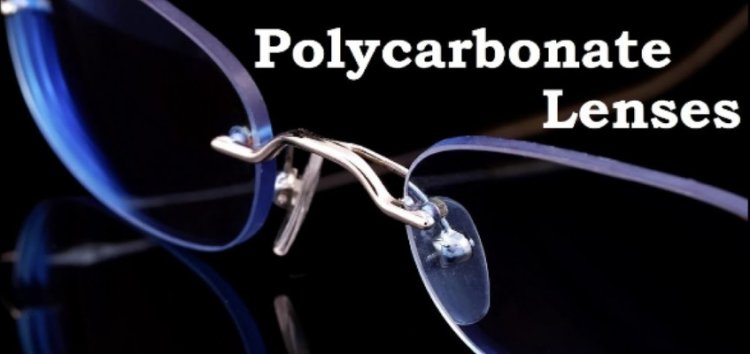Polycarbonate Lenses

Polycarbonate Lenses
Polycarbonate lenses are not only thinner and lighter in weight than traditional plastic eyeglass lenses, they also offer ultraviolet (UV) protection and scratch resistance. In addition, they are very impact resistant. This extra toughness makes them the lenses of choice for children's glasses, sports eyewear and safety glasses.
Because less of the polycarbonate lens material is needed to provide the same amount of visual correction that a traditional plastic lens offers, polycarbonate lenses are thinner and lighter in weight. In fact, polycarbonate lenses are sometimes referred to as featherweight lenses.
Newly developed plastic lenses, known as Trivex, are even more lightweight than traditional polycarbonate lenses. Trivex lenses also are extra tough and resist cracking. These qualities make the lenses ideal for use with rimless styles, because they can be easily drilled for assembly with other eyeglass components.
UV and Scratch Protection
Polycarbonate lenses also have built-in ultraviolet protective properties. Similar to the way that sunblock prevents the sun's rays from damaging the body, UV protection shields the eyes from the same detrimental light rays. Other types of plastic lenses must be specially treated to block the same amount of UV, but polycarbonate lenses automatically offer this protection.
Polycarbonate material is manufactured differently from the way that other lens materials are fabricated. An enormous amount of pressure is used to compress the raw material. The resulting product holds up so well under impact not because it is hard and unyielding, but rather because it is flexible and gives slightly under pressure without breaking. Polycarbonate lenses are actually constructed out of material that is identical to what is called "bulletproof glass." Polycarbonate has also been used for astronaut helmet shields and space shuttle windshields.
The flexibility or softness of the lens material dictates that a scratch resistant coating be applied to the front and back surfaces of polycarbonate lenses. Manufacturers automatically coat them, and fabrication laboratories add a scratch resistant coating to any uncoated lens surface before sending the lens to a dispenser. So any polycarbonate lens you buy already has built-in scratch resistance. Many polycarbonate lenses also are specially coated to be smudge-resistant.
Impact Resistance
Polycarbonate lenses are safer for eyeglasses than traditional lens materials because they aren't brittle. They won't usually break if they come into contact with fast-moving objects such as balls, racquets or BBs. Regular glass and plastic eyeglass lens materials shatter upon violent contact in the same way that car safety glass does. Pieces of the lens are sprayed around, which potentially can cause injury to the eye. That's why polycarbonate lenses, which hold up better under impact, are recommended in sports goggles, children's glasses and some safety eyewear.
Studies have been made detailing exactly what happens when an object traveling at high speed meets a polycarbonate lens versus a traditional plastic lens. Using film that is slowed down and viewed frame by frame, one investigation demonstrated that a fast-moving ball coming into contact with a plastic lens broke the lens and impacted the eye. In contrast, the same ball traveling at the same rate of speed impacted the polycarbonate lens and flexed the lens but did not break it.
(Caution: Do not test polycarbonate lenses by firing BBs or hurling objects at them while someone is wearing them! Polycarbonate is impact resistant, but there is no guarantee of non-breakage.)
Use the Proper Frame
Polycarbonate's impact resistant nature could tempt you to forgo placing the lenses into a proper sports frame, using a regular "dress" eyeglass frame instead to play basketball, racquetball and so forth. The danger in not using a sports frame is that while the polycarbonate lenses provide eye protection, a regular eyeglass frame is not capable of holding up to the impact of a ball or racquet.
It's dangerous to play sports in polycarbonate lenses in an eyeglass frame that is not rated for sports eyewear. This combination defeats the purpose of using polycarbonate lenses for safety. However, polycarbonate is always recommended for children's eyewear, because kids tend to be rough at play even when they are not taking part in an organized sport.
The same is true of safety glasses. Polycarbonate lenses will protect eyes from many hazards in the workplace or at home, but if they are placed in a frame that is not safety rated, the eyeglasses cannot be considered safety glasses under the law. Legalities aside, they may not provide enough protection for the particular activity. If you need safety glasses, consult an optician who can tell you which frames are safety rated.




